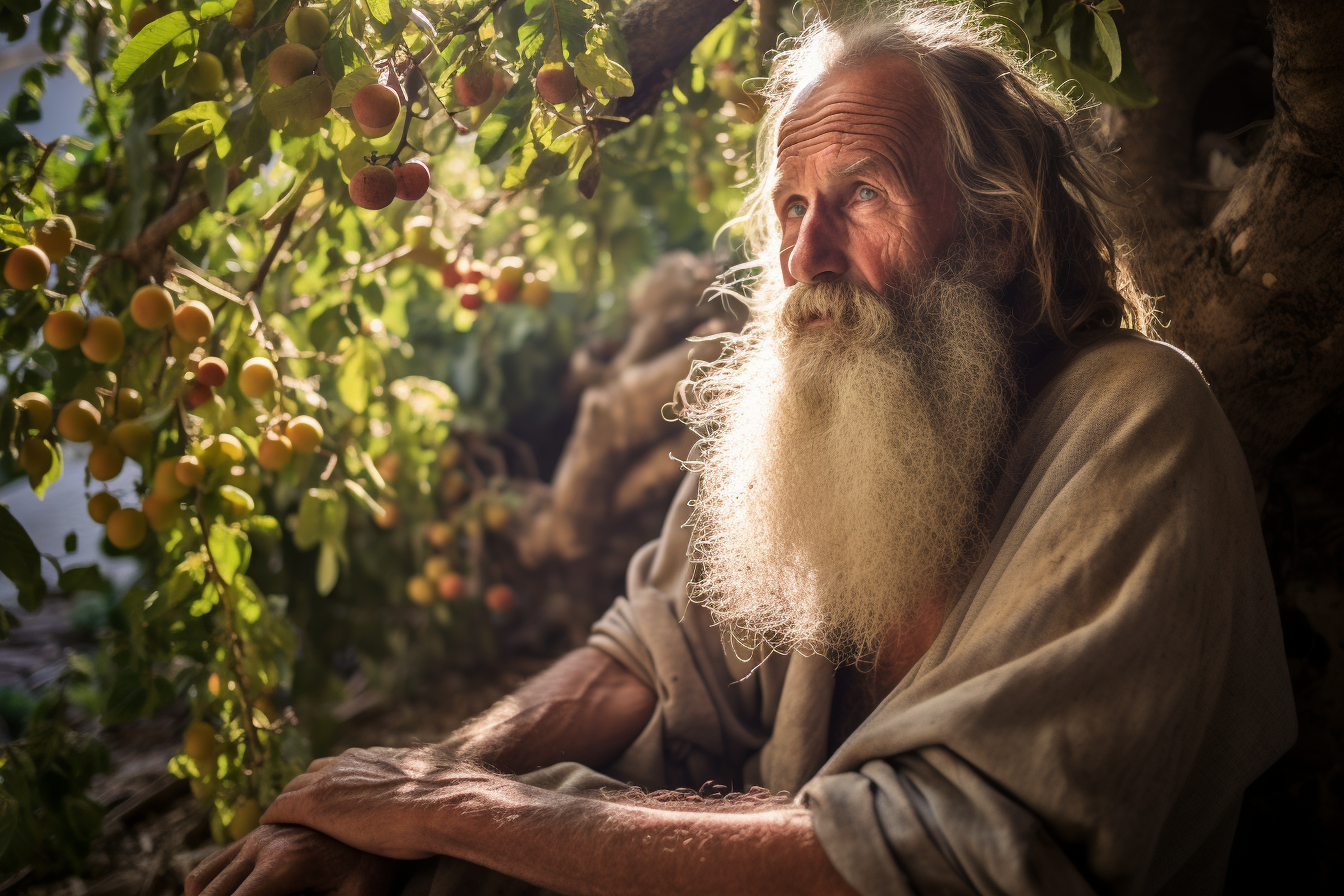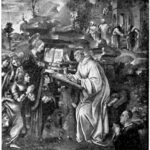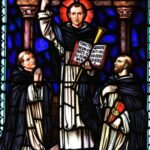
St. Bartholomew
St. Bartholomew
St. Bartholomew: The Enigmatic Apostle Who Walked Through History’s Turbulent Times
When he lived: St. Bartholomew, also known as Nathanael, lived during the early 1st century AD.
Where he lived: Born in Cana of Galilee, Bartholomew traversed various regions as an Apostle, spreading the teachings of Jesus Christ.
Notable world events during the time of his life:
- The Great Fire of Rome (64 AD): A catastrophic fire swept through Rome, consuming vast portions of the city. The blame fell on Emperor Nero, who allegedly played the lyre while watching the city burn. This event led to the persecution of Christians and played a significant role in shaping early Christianity.
- The Siege of Jerusalem (66-70 AD): A Jewish revolt against Roman rule culminated in the Siege of Jerusalem. The city was captured and the Second Temple was destroyed, forever changing the course of Judaism and Christianity.
- The Fall of Pompeii (79 AD): The catastrophic eruption of Mount Vesuvius buried the prosperous Roman city of Pompeii in volcanic ash. This tragedy left a lasting impact on Roman society, preservation, and understanding of ancient history.
- The Han Dynasty’s Collapse (220 AD): The once-mighty Han Dynasty in China fell, leading to a period of disunity and political fragmentation known as the Three Kingdoms period. This era shaped the cultural and political landscape of China for centuries to come.
- The Life of Confucius (551-479 BC): Though Confucius lived centuries before St. Bartholomew, his philosophy and teachings continued to exert a profound influence on Chinese society during the Apostle’s lifetime, as they do to this day.
- The Invention of the Papyrus Scroll (circa 2000 BC – 1st century AD): The widespread use of papyrus scrolls in the ancient world facilitated the dissemination of knowledge, including early Christian writings, enabling the rapid spread of the Christian faith.
His Patronage:
- Leatherworkers and Tanners: It is believed that Bartholomew’s death, allegedly flayed alive, connects him to professions involving the processing of animal hides.
- Bookbinders and Printers: Due to the significance of the papyrus scroll and the dissemination of knowledge during his time, he is also regarded as the patron saint of those who work with books and printing.
- Neurological Disorders: Some traditions attribute healing miracles to St. Bartholomew, leading to his patronage of those suffering from neurological ailments.
- Astronomy and Natural Philosophy: Bartholomew’s life spanned a time of great scientific curiosity, making him a patron saint for those involved in the pursuit of knowledge and understanding the natural world.
St. Bartholomew’s life intertwined with some of history’s most remarkable events, and his enduring patronage speaks to the reverence and fascination with this enigmatic Apostle. As we continue to explore and unravel the mysteries of the past, his legacy stands as a guiding light through the turbulent annals of history.
Bartholomew, a true Israelite
When we talk about the lives of the Twelve Apostles, we are always confronted with the fact that we know almost nothing about them. This is because no detailed records about their early lives were written, either by themselves or by others who knew them personally. Yet these “hidden men” are also the foundation stones of Christ’s Church, which encompasses the whole earth. This is our concern for our dear St. Bartholomew.
The Gospels mention Bartholomew’s name. He was included in the lists of the chosen Twelve in Matthew 10:2-4, Mark 3:13–19, and Luke 6:12–16. Biblical scholars identify him with Nathanael, a man of Cana in Galilee who was summoned by Philip. Philip, who was from Bethsaida, met Jesus in Galilee. He believed that Jesus was the one about whom the prophets of old spoke. When Philip found Nathanael, he told him, “We have found the one about whom Moses wrote in the law and also the prophets, Jesus, son of Joseph, from Nazareth” (John 1:45b). Nathanael answered him, and perhaps the only instance that he spoke is recorded in the Gospel of John: “Can anything good come from Nazareth?” (John 1:46).
Nevertheless, Nathanael went with Philip to meet Jesus. Upon seeing him, Jesus paid him a great compliment, saying, “Here is a true Israelite. There is no duplicity in him” (John 1:47b). Nathanael was confused, so he asked Him how He knew him. Jesus said, “Before Philip called you, I saw you under the fig tree” (John 1:48b). Biblical scholars believe that an amazing revelation was involved in this scene, which brought Nathanael to exclaim, “Rabbi, you are the Son of God; you are the King of Israel” (John 1:49b). However, Jesus countered: “Do you believe because I told you that I saw you under the fig tree? You will see greater things than this” (John 1:50b).

Seeing “Greater Things”
True enough, Nathanael did see greater things since his encounter with Jesus. He was with Jesus in His public ministry. He saw with his very own eyes the Son of God. He heard His teachings. He witnessed the miracles wrought by Him.
Nathanael was one of those to whom the Risen Jesus appeared on the shore of the Lake of Tiberias (see John 21:1–14). They had been trying to catch fish all night, but all in vain. As the morning broke, they saw a man standing on the shore and asked if they had caught some fish. They answered with dismay that they had not caught anything. The man told them to cast their net again, and they made such a great catch that they could barely haul the net. After seeing such a marvelous event, John cried out to Peter, “It is the Lord!” (John 21:7).
After the Holy Spirit’s descent upon the Apostles on Pentecost, Bartholomew traveled to foreign lands to proclaim the Gospel of Jesus. It is said that he founded Christian communities in parts of India and in countries we now call Turkey and Armenia. According to tradition and ancient historical writings, Bartholomew was believed to have been martyred by flaying alive and was beheaded at the order of the Armenian king Astyages. His feast day is August 24.
Five Interesting Facts About St. Bartholomew
- St. Bartholomew is the patron saint of Armenian tanners, leatherworkers, bookbinders, farmers, butchers, plasterers, house painters, tailors, and glove makers.
- The name Bartholomew translates from the Hebrew name Bartholomaios, meaning “son of Talmai.”
- Nathanael in Hebrew means “God has given” or “gift of God”.
- St. Bartholomew’s relics had been deposited in churches named to honor him: his arm in Canterbury, England; his skull in Frankfurt, Germany; and his body in Lipari.
- In Christian art, St. Bartholomew is often depicted with flayed skin or holding a knife in his right hand.
Prayer to St. Bartholomew
Strengthen in us, O Lord, the faith by which the blessed Apostle Bartholomew clung wholeheartedly to your Son, and grant that through the help of his prayers, your Church may become for all the nations the sacrament of salvation. Through our Lord Jesus Christ, your Son, who lives and reigns with you in the unity of the Holy Spirit, one God, for ever and ever Amen.



